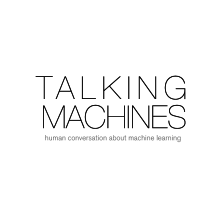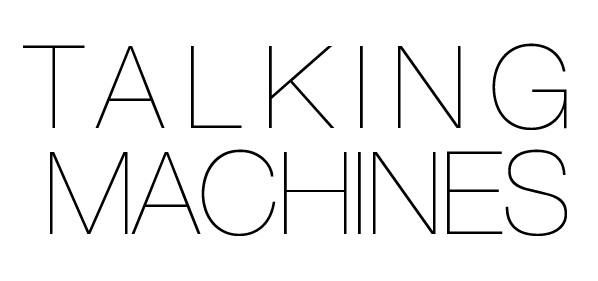
Robohub.org
Why we need journalism about machine learning
Talking Machines is in the process of raising funds to defray the cost of producing our first season and to help us start production on our second season. On the show we’ve talked about how we’ll use the money (to pay for studio time, editing, and the cost of travel to get our great interviews). But we haven’t gotten to the heart of the question yet: Do we even need journalism about machine learning?
We need journalism about machine learning, artificial intelligence, and data science desperately. Not just to calm the public conversation, which always seems to be full of hype on these topics, but to make sure that work in our field is sustainable. And no one is going to make the case for our industry unless we do it ourselves.
I live in Cambridge, MA. A lot of the people here are scientists or are training to enter the field. From the vantage point of Cambridge, the answer seems to be a resounding yes, we do need journalism about these topics, and Talking Machines is a way for those in the field to access each other’s ideas, and for those in training to get exposure to work they might not have heard of.
But not all of our listeners live in Cambridge, or come from an academic background. We get letters from all over the world saying that Talking Machines has allowed them to better understand ideas they’d like to use in their business, helped them talk with their data teams, or helped them make the right hire.
Most importantly though, not all of our listeners think they live a life that has anything to do with machine learning, or computer science .. or science at all. We started Talking Machines because we wanted to open the world of machine learning up to a wider audience, to help them understand the reality of research in the field and the industry, and how that impacts their lives in a real way on a daily basis.
The public conversation around machine learning (and by extension artificial intelligence) is filled with extreme hype, both positive and negative. These extremes have lead to a crippling pattern of “winters” where interest, activity, and funding in the field dries up. If we present the reality of what is happening in the field in a way that invites the public to be part of the conversation, that arms them with the knowledge they need to participate, and we will create a more sustainable industry for ourselves. For our own benefit, and for the good of those who use the tools we make, it’s our responsibility to play a bigger role than we have before in the public conversation.
Talking Machines does just that. By introducing machine learning to a wide audience in a way that allows people in, we ensure realistic expectations of work coming out of both in the industry and the field. More than that, we allow people to understand the tools that they use every day and the impact that they have. It is our responsibility to make sure we are accurately represented, and only we can do that. Our project has been going on for a little under a year now, and we’ve made a difference in the accessibility of the field.
But if we’re going to keep going, we need your help to do so.
Support Talking Machines’ Kickstarter campaign to keep journalism on machine learning going strong!
tags: Artificial Intelligence, Big Data, c-Politics-Law-Society, crowdfunding, machine learning, Talking Machines






